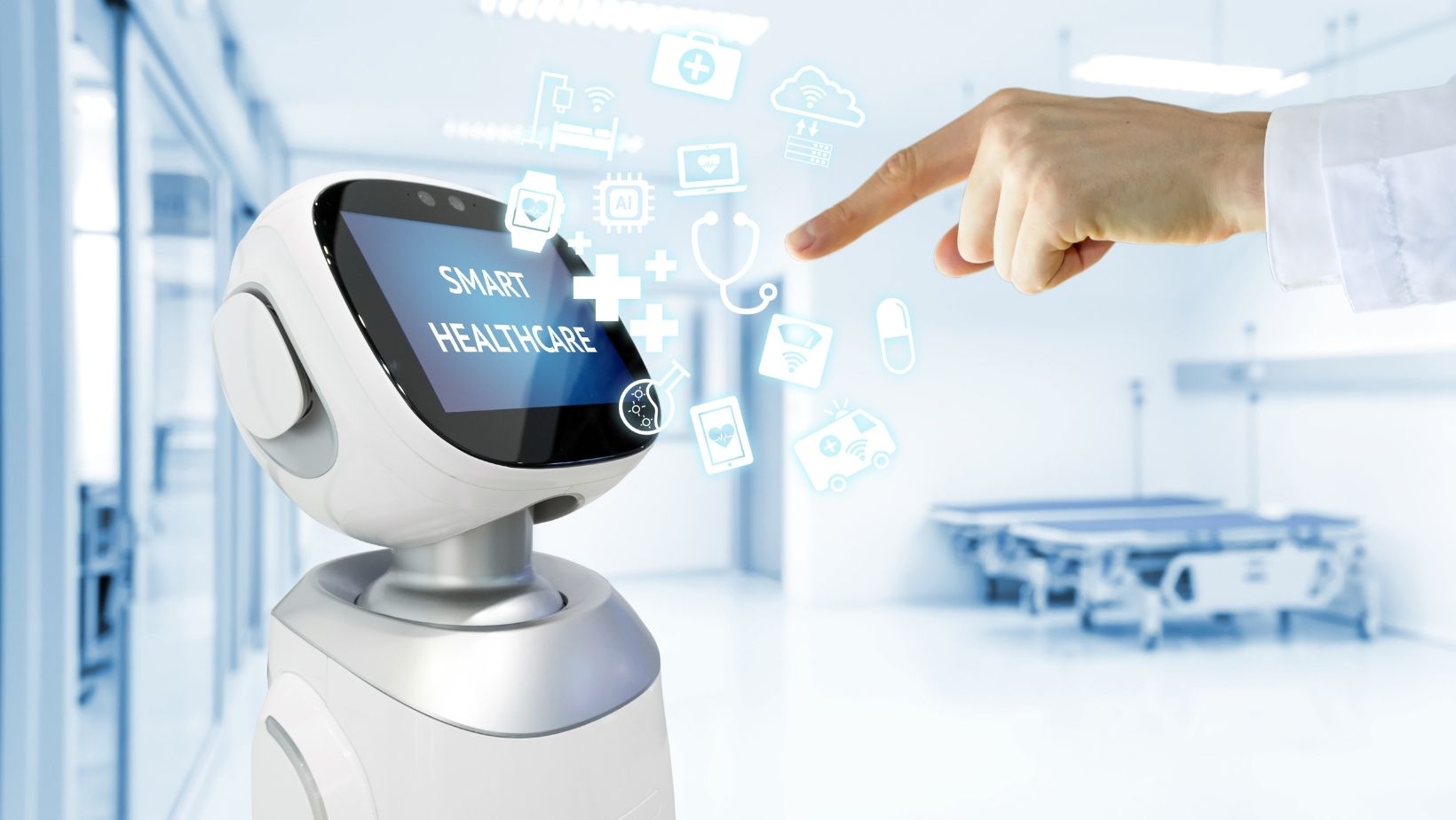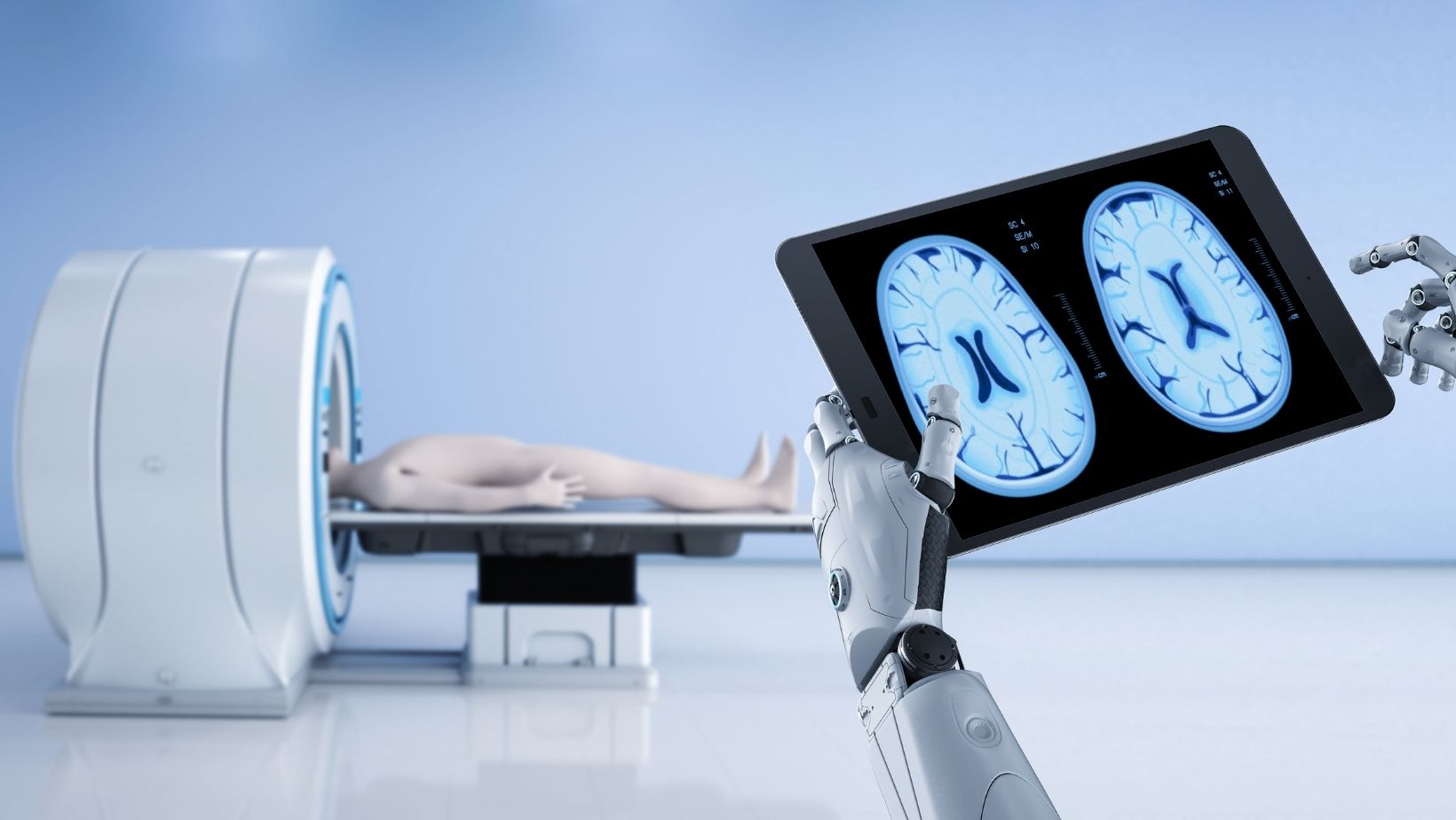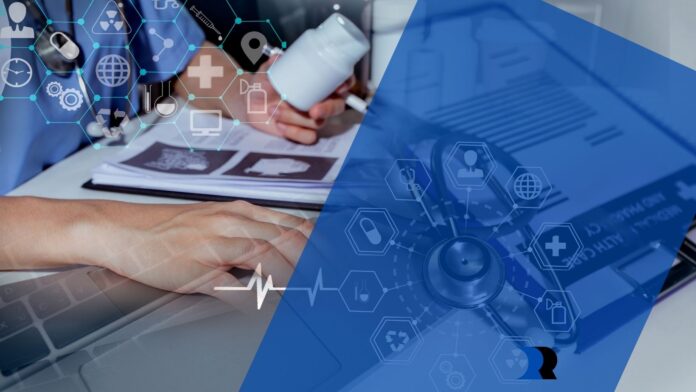Artificial intelligence (AI) holds immense potential to transform continuing healthcare education. Recent advances are enabling more personalized, data-driven learning. AI systems can analyze medical literature and patient data to inform training. This allows clinicians to stay updated on the latest knowledge.
However, thoughtfully integrating AI in education also poses challenges. This guide explores the growing role of AI in healthcare. It provides a comprehensive look at the breakthroughs, benefits, and pitfalls of using AI for continuing education. Future possibilities for AI-enhanced learning systems are also discussed.
Overall, AI represents a promising avenue for empowering healthcare professionals through advanced education. But responsible implementation is critical for realizing the full benefits.
Recent Breakthroughs in AI and Healthcare
There have been several notable breakthroughs recently in applying AI to improve healthcare and education. In 2022, researchers at Stanford University developed an AI system that can analyze chest X-rays and predict the risk of patient death more accurately than radiologists. The system was trained on over 2 million chest X-rays and could identify features undetectable to the human eye.
Another milestone was reached in 2020 when an AI system passed multiple sections of the United States Medical Licensing Examination. The system demonstrated expertise comparable to graduating medical students. While not yet ready to independently practice medicine, this represents a major advancement in AI’s educational capabilities.
In the field of continuing healthcare education, AI is being applied in innovative ways. For example, Google DeepMind’s AI system AlphaFold learned to predict 3D protein structures. This knowledge could significantly advance our understanding of diseases and drug interactions to augment medical education.
Additionally, AI can personalize and enhance existing continuing education protocols like Advanced Cardiac Life Support (ACLS) training. ACLS educational apps powered by AI have been developed to adapt CPR instructions and feedback in real-time based on measurements like chest compression depth.
This level of personalized education was not previously possible. These examples demonstrate AI’s immense potential to complement and enhance traditional continuing healthcare education. More breakthroughs are expected as these technologies continue to rapidly evolve.
Building Effective AI Systems for Healthcare Education
Implementing impactful AI systems for healthcare education requires careful planning and execution. Following a thoughtful development roadmap can help ensure these systems deliver real value to learners.

First, high-quality, representative datasets are crucial for training performant AI models. Data should span diverse patient populations and care scenarios. Insufficient data leads to biased systems that fail in unexpected situations.
Second, algorithm transparency is important, especially in healthcare. Complex AI models act as “black boxes”, making it unclear how they arrive at outputs. Explainable AI techniques allow humans to understand the key factors behind AI predictions and recommendations.
Additionally, human-AI collaboration should be facilitated through intuitive user interfaces. AI is best positioned as an assistive tool for providers, not a replacement. Workflow integration enables seamless AI augmentation of clinician decisions during education and practice.
Finally, ethics and fairness must be prioritized when building AI for healthcare education. Data and algorithms should be examined for issues like gender or racial bias that could propagate through models. Ongoing monitoring for model drift helps maintain integrity.
Adhering to this type of rigorous development and deployment process will lead to safe, effective AI systems that enhance continuing education for healthcare professionals. Learners ultimately benefit from AI technologies built on a solid foundation of trustworthy data, explainable models, and human-centric design.
Future Directions of AI-Augmented Healthcare Systems
Looking ahead, AI has the potential to fundamentally transform continuing healthcare education in impactful ways. Several promising directions for AI-enhanced educational systems have emerged.
One area of focus is developing AI tutors that can provide personalized and adaptive education. By analyzing learning styles and gaps, AI tutors can tailor instruction, feedback, and recommendations uniquely for each student. Such systems have already demonstrated learning gains in controlled studies.
Simulated healthcare environments are also being augmented with AI. Interactive simulations powered by natural language processing and computer vision can provide realistic clinical scenarios for learners to practice diagnosing and treating virtual patients. This helps develop skills without real-world risks.
In the long-term, on-the-job AI assistance for clinicians could become commonplace. AI assistants may monitor electronic health records to proactively suggest timely educational materials related to each patient case. This emerging paradigm of just-in-time education powered by AI promises to make learning seamless and ongoing.

However, realizing this future will require addressing challenges like regulatory approval, liability, and acceptance. Thoughtful integration of AI alongside human educators will be critical for success. But the possibilities for AI-enhanced learning are dramatic.
Challenges and Opportunities for AI in Healthcare Education
Integrating AI in healthcare education poses challenges but also creates significant opportunities.
A major challenge is overcoming educator resistance. Some view AI as threatening. Emphasizing AI’s assistive role and providing training is key. Data concerns like privacy, security, and bias also require thoughtful management.
However, AI can personalize learning by targeting individual gaps. It also enables consistent instruction across regions, expanding access. AI further allows educators to focus on students rather than administrative tasks.
Overall, AI brings major opportunities to improve healthcare education, but challenges must be proactively addressed. With responsible implementation, AI can humanize and enhance learning experiences.
Conclusion
In closing, AI holds remarkable potential to transform continuing healthcare education for the better. Recent breakthroughs demonstrate AI’s capabilities to analyze complex medical data, improve diagnostics, and even begin passing medical licensing exams. This promises to unlock more personalized, adaptive, and data-driven educational experiences.
However, thoughtfully implementing trustworthy AI systems remains critical for realizing benefits. Challenges exist, including regulatory approval, ethics, and acceptance. But the opportunities are immense. AI can enhance access, efficiency, consistency, and personalization at scale for learners globally.
Ultimately, AI should be integrated as an assistive augmentation that complements human educators. With prudent oversight and responsible development, AI and human intelligence together will elevate healthcare education to new heights. This will enable clinicians to stay at the forefront of medical knowledge throughout their careers for the benefit of all patients.


